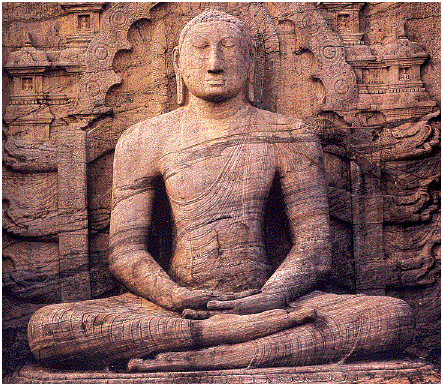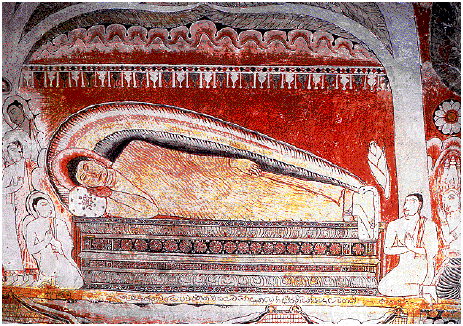The Jungle
Kamala Tiyavanich
(Silkworm/University of Washington)

- ...snakes sometimes slip under the mat on which you are sleeping. When you put your hand in your pocket, a scorpion stings you with its venomous tail.
Thus, The Buddha in the Jungle tells of a less paradisical and more parasitical Thailand. It's the real thing, or, better, a real world of bugs and raptors and venomous creatures mixed with innocents, holy men, and pure magic.
Tiyavanich has gathered here a myriad of documents, books, and letters from Westerners passing through, along with writings by those who lived there at the time. She traveled to Thailand herself, interviewed monks and their children and their children's children and came up with a bewitching mix of fantasy and reality.
Take elephants. Elephants can move one along on loping express-train rides across an impossible countryside. But every now and again male elephants go into something called "musth," where a previously benign creature will turn dangerous, trying to kill anyone on sight. At those time, he must be securely shackled to a tree.
The cure? You call an elephant doctor who brings arrows and a secretly-formulated powder. You dipped the arrowheads into the powder, shoot them into the legs of the elephant who then becomes "so lame that he will scarcely be able to move at all, at which your servants the coolies and mahouts will surely have the chance to rope him."
Or you could call on the monk Ajan Khao. He was meditating one night and an elephant stuck his trunk in the window of his hut so that Khao "could feel the elephant's breath above his head." The beast also stole some of his tamarinds. Khao stepped out of his hut and explained to the elephant "that the practice of moral discipline --- sila --- insured that we will be reborn as a human or a deity.
- Listen to me carefully. I am teaching you with compassion. Your brother-monk will give you the Five Precepts. Please understand the precepts so that when you die you will go to a higher realm. At worst you will be reborn in a heavenly realm. In any case, it's better than being reborn as an animal only to be a vehicle like a horse or a beast of burden like an elephant. If you can't work hard, people will beat you.
He also explained why the elephant shouldn't steal tamarinds. "Villagers gave these tamarinds to me so I could polish my [begging bowl] lid. Since you did not know the precept you won't get bad karma this time. I just want to let you know that it is not right to take tamarinds without asking permission from the owner."
It is said that the elephant "stood still the whole time."
- Once the monk finished, the elephant turned around and walked away. Its footsteps made the earth shake from the force of its weight. The elephant did not return to the forest hermitage for the rest of the rains retreat.
Each of these forty-four tales has its own special delight. One tells of Ajan At, the abbot at Night Heron Village. He was blind. The villagers called him "Venerable Father Dark Eyes."
A Norwegian visitor tells of the way the Siamese dealt with their dead. Laypeople and bhikkus would take them to the charnel grounds where the dogs, the crows, and the vultures could have at them.
An official would cut the body open with a sharp knife, and the vultures would close in, chasing off the dogs and the crows, flapping their wings, uttering "their well-known sepulchral scream, jumping about in restless anxiety."
And then, there was the problem of the tigers, who could eat you up. A monk by the name of Ajan Phu fell asleep in the jungle, but he woke with the feeling that somebody was touching his head. "He opened his eyes. With mindfulness he looked up and saw that this somebody was a tiger licking his shaved head."
- It was a big striped animal about three and a half meters long. As it turned away, Ajan Phu could hear the tigers "ankles" crack. The thedong monk did not know how long it had been watching him. Being mindful and not making any abrupt moves probably saved Ajan Phu's life.
These are tales not unlike koans --- to be savored, a few at a time. The best of it is that not only do they tell us something about the abbots and lay-people and Buddhism, they give a comprehensive feel for what it was like to be in Siam in that innocent time. It isn't Anna and the King of Siam. It's forty-four times better.

 I know, I know, I know: these things must be addressed --- Adolf and Krupp and sturm und drang and JFK "gunned down in Dallas" and "The weight of the world is hate." These things must be addressed; we must worry about them; we must try to change whatever it is that gave such a case of the creepy horrors to us and the 20th Centuries.
I know, I know, I know: these things must be addressed --- Adolf and Krupp and sturm und drang and JFK "gunned down in Dallas" and "The weight of the world is hate." These things must be addressed; we must worry about them; we must try to change whatever it is that gave such a case of the creepy horrors to us and the 20th Centuries.